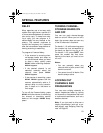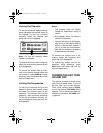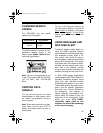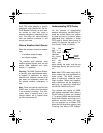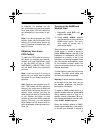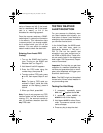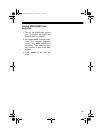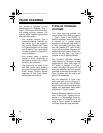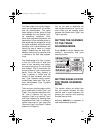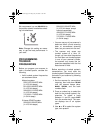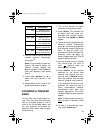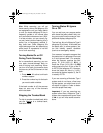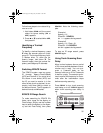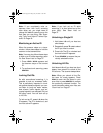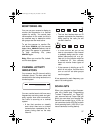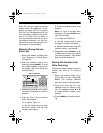
31
The fleets might be the police depart-
ment, the fire department, the utilities,
and city administration. The police
might decide to further divide its fleet
into subfleets such as dispatch, tacti-
cal operations, detectives, north,
south, east, and west side patrols, and
supervisors. All the available police ra-
dios would then be assigned to one of
the police subfleets, letting the police
centralize their communications and
control the type of users on a single
system. Determining the exact fleet-
subfleet hierarchy for a particular area
is referred to as
fleet map program-
ming
.
The disadvantage of a Type I system
is that the brief burst of data sent
when a user transmits must contain
the radio’s talk group ID, and its fleet
and subfleet. This is three times the
amount of data a Type II system radio
sends. Since the data capacity of
Type I systems is limited and the
amount of data increases with each
user, Type I systems usually accom-
modate fewer users than Type II sys-
tems. Nevertheless, Type I systems
are still in use.
There are also
hybrid
systems which
are a combination of both Type I and
Type II. Your scanner defaults to mon-
itor Type II systems, but you can
change to Type I or a hybrid of Type I
and Type II systems by selecting a pre
programmed fleet map or creating a
custom fleet map for your area (see
“Scanning Type I and Hybrid Trunked
Systems” on Page 40).
You do not need to determine the
fleet-subfleet hierarchy for Type II sys-
tems unless you are tracking hybrid
systems that contain both Type I and
Type II systems.
SETTING THE SCANNER
TO THE TRUNK
SCANNING MODE
Press
TRUNK
to switch between the
scanner’s conventional and trunk
scanning modes.
SETTING SQUELCH FOR
THE TRUNK SCANNING
MODE
The squelch setting can affect how
fast your scanner acquires the data
channel, and in some instances, can
prevent your scanner from acquiring
the data channel at all.
Adjusting
SQUELCH
is necessary to
track transmissions precisely.
20-432.fm Page 31 Friday, July 14, 2000 11:30 AM



